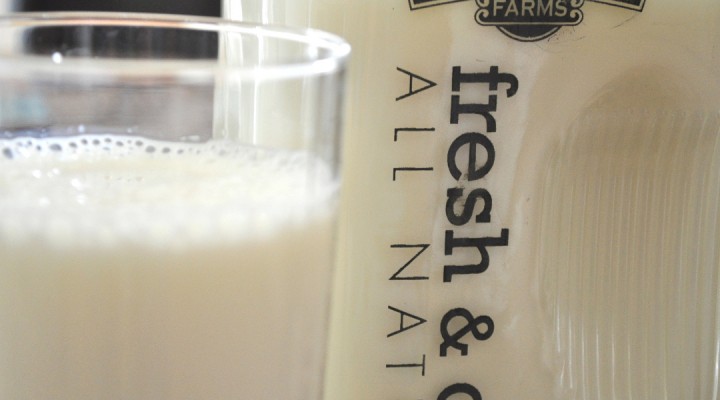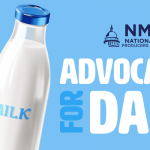
NMPF’s Regulatory Affairs Director, along with an Olympic athlete (and dairy farmer), told the government’s Dietary Guidelines Advisory Committee how dairy is a critical component of diet that should be considered in light of its full range of benefits in comments made today before the panel.
Miquela Hanselman from NMPF, and Elle St. Pierre, a farmer-member of the Dairy Farmers of America cooperative and a world medalist track athlete who represented the United States in the women’s 1,500-meter race in the 2021 Tokyo Olympics, both offered their perspectives on dairy’s role in diet before the panel that will shape the scientific report informing the 2025-2030 Dietary Guidelines for Americans. Both Hanselman and St. Pierre hold degrees in nutrition and public health.
“Nearly 90% of Americans don’t consume the recommended servings of dairy,” said Hanselman. “Dairy products have always been an integral part of the dietary guidelines. Milk is a good or excellent source of 13 essential nutrients, including calcium, potassium and vitamin D, three of the four nutrients of public health concern.”
Hanselman’s comments focused heavily on how dairy at all fat levels benefits diverse communities and how current guidelines work against including varieties of milk that Americans consume the most. “With the scientific question focused on sources of saturated fats, this committee has the opportunity to remedy a previous oversight and include the newer science on dairy fats and the dairy matrix,” she said. “Dairy foods, regardless of fat level, appear to have either neutral or beneficial effects on chronic disease risks including cardiovascular disease, type 2 diabetes, obesity, and stroke. This committee shouldn’t default to the overly broad recommendation to avoid saturated fats regardless of food source.”
St. Pierre, a U.S. track and field champion and recent new mom, spoke out against the proliferation of plant-based imitation beverages that offer wildly inconsistent nutritional value, cautioning against any consideration of them as potential dairy replacements. Plant-based beverages “are so nutritionally different from real milk that whether one views them positively or negatively, their impact on health cannot be assumed to be the same as, or even similar to, that of milk,” said St. Pierre, who lives near Berkshire, VT. “I strongly caution against and oppose any inference that health impacts associated with milk consumption would apply to plant-based milk alternatives.”
Today’s hearing is part of the committee’s information-gathering process for the next set of guidelines. The Dietary Guidelines Advisory Committee is convened every five years by the Department of Agriculture and the Department of Health and Human Services to make recommendations for American diets, affecting numerous federal nutrition programs.























